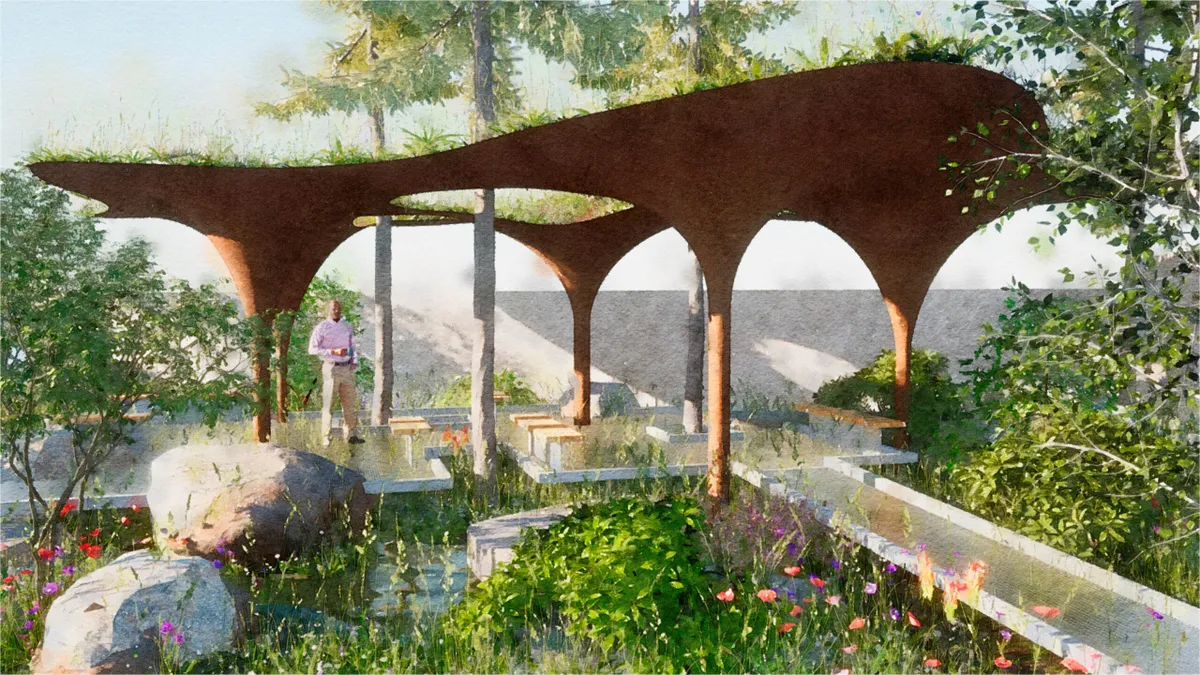Grey water will be an important source of water for the garden by 2035, the Royal Horticultural Society (RHS) predicts. As summers are predicted to become drier, the charity says that using grey water from sinks, baths, showers and washing will lessen the need to use mains water and stored rainwater, which often runs out in dry spells.
You may also like
- Saving water in garden design
- How to make the most of rainfall
- Best water butts
- When to water plants in hot weather
- Adapting to drought: how we should be gardening
The charity has recently appointed a Senior Water Scientist and a Water Reduction Officer, and part of their remit will be to explore how grey water can be used in the garden. This includes researching plant and substrate combinations to remove potential pollutants and making the movement of water from the house to the garden easier.

Gardens showcasing clever rainwater management feature heavily at the RHS Chelsea Flower Show this year, including in The Water Aid Garden which includes a rainwater harvesting pavilion and The National Autistic Society Garden, in which rainwater is channelled away from the main terrace via a 'waterfall roof' which feeds into a mossy dell that acts as a swale.
The RHS is already investigating the role grey water will play in maintaining its own five gardens. Rain gardens are also being created across the five RHS sites as a way to hold water for longer, manage run-off and minimise flood risk and the charity has invested in rainwater collection and storage. This includes harvesting rainwater from RHS Hilltop at RHS Garden Wisley and directing it to the purpose-built Clear Lake for re use. Other measures include improved leak detection, use of precision irrigation methods, and selection of plants that are ideally suited to local conditions. All of this means that a minimum amount of water will be taken from the environment across all RHS gardens by 2030.
Dr Nicholas Cryer, Senior Water Scientist at the RHS, says: “The greenest approach to watering your garden is to minimise its use entirely through clever planting and good soil care, with rainwater harvesting the next best thing. But with summers predicted to become hotter and drier and the need to remedy a growing water deficit, we need to be more creative in how we maintain our green spaces. The estimated 60 litres of grey water produced per person within our homes each day can be recycled in our gardens.”
RHS tips for using grey water
• Grey water can be used in the short term on ornamentals but not edible crops.
• To minimise bacterial growth, grey water from sinks and baths should be stored for no more than 24 hours.
• Grey water should be applied by watering can, as pollutants in the water can clog irrigation systems.